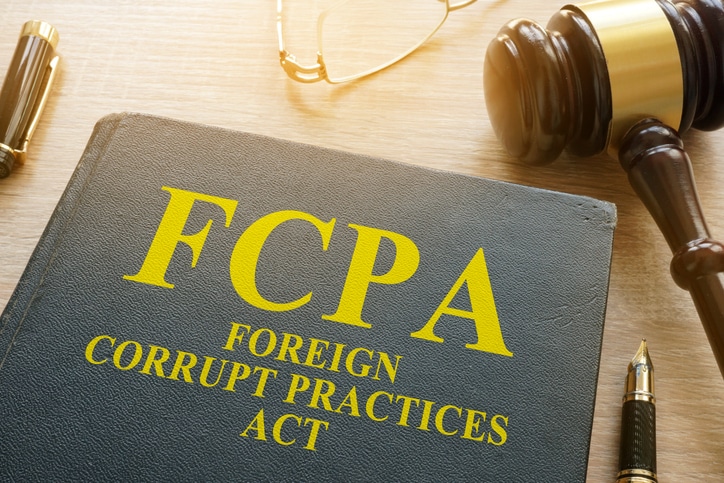Our firm, located in Washington, DC, specializes in representing whistleblowers in both federal fraud and New York state False Claims Act cases.
Based in Washington, DC, our firm is renowned for its expertise in representing whistleblowers in both federal and New York state False Claims Act cases.
If you’re confronting issues like securities violations, government contracting fraud, tax evasion, or healthcare-related fraud under the New York False Claims Act, our team is equipped with the knowledge and experience to offer legal assistance. We navigate the complexities of both federal and New York state whistleblower laws, ensuring your rights are protected while guiding you through the claim filing process.
Whistleblowers are offered crucial protections and incentives for reporting federal law violations under federal laws, including those enforced by:
- The False Claims Act (FCA)
- Securities and Exchange Commission (SEC)
- Commodity Futures Trading Commission (CFTC)
- FinCEN and the Bank Secrecy Act (BSA)
- Internal Revenue Service (IRS)
Our attorneys have a wealth of experience handling claims under these laws and are adept at guiding clients through the intricacies of their respective award programs. Key cases include:
- Bradley Birkenfeld: A former UBS banker who helped wealthy Americans open secret offshore Swiss bank accounts to avoid paying taxes on their income. Birkenfeld was awarded $104 million for blowing the whistle, and a major crackdown on offshore tax evasion.
- Howard Wilkinson: Former Dankse Bank manager who exposed a $230 Russian money laundering scheme that moved rubles out of Russia to Estonia, coverted them to dollars, then moved them to New York with the assistance of three correspondent banks: Bank of America, J.P. Morgan, and Deutsche Bank.
Get in touch for a free consultation with one of our new york whistleblower attorneys. Our team includes former SEC Commissioner Allison Herren Lee and former SEC Enforcement Senior Counsel, Andrew Feller. And world-renowned attorney, Stephen M. Kohn who is behind the above whistleblower victories.
Whistleblower Award Programs
False Claims Act: Qui Tam
Under the False Claims Act and qui tam, whistleblowers, also known as qui tam relators, may receive between 15-30% of recovered government funds. The FCA is a highly effective law, distributing over $8 billion in awards since 1986. Since many whistleblower allegations implicate both federal and state violations and in many cases, the conduct of False Claims Act defendants may also implicate violations of federal securities, commodities or tax laws as well as state laws.
Other common types of NY whistleblower cases may include:
- Healthcare Fraud
- Medicare Fraud
- Stark Law Violations
- Tax Fraud
- Anti-Kickback Statute Violations
- Mortgage Fraud
- Financial Aid Fraud
SEC Whistleblower Program
The SEC Whistleblower Program ensures the confidentiality of whistleblowers, offering awards between 10 to 30 percent of the money collected in cases where the monetary sanctions exceed $1 million.
CFTC Whistleblower Program
Also part of the Dodd-Frank Act, the CFTC whistleblower program awards individuals with 10-30% monetary incentives for reporting violations of the Commodity Exchange Act that lead to successful enforcement, all while ensuring privacy and protection against retaliation.
AML and Sanctions Whistleblower Program
Amended under the Anti-Money Laundering Whistleblower Improvement Act of 2022, the Anti-Money Laundering and Sanctions Whistleblower Program
encourages individuals to report money laundering and sanctions violations, offering 10% to 30% of the total sanctions collected in successful enforcement actions.
IRS Whistleblower Program
The IRS whistleblower program offers 15-30% awards to whistleblowers who provide detailed, reliable information leading to the recovery of unpaid taxes, penalties, and interest.
Understanding the New York State False Claims Act
In addition to federal programs, the New York False Claims Act specifically targets fraud within state-funded programs, including Medicaid. Our attorneys are proficient in the nuances of this state-specific legislation, offering comprehensive support for exposing fraud at the state level. Depending on the case and state intervention, whistleblowers can receive awards ranging from 15% to 30%.
The New York False Claims Act award whistleblowers with credible information can receive 3x the damages and penalties between $6,000 – $12,000, not including legal fees. If someone is self-reporting their own fraudulent behavior, they are subject to 2x the damages.
Keep in mind, New York is currently the only state in the U.S. that allows whistleblowers to file a whistleblower lawsuit against individuals for violating state tax laws, when the individual’s income is $1 million or more. There is a 10-year statute of limitations for all New York False Claims Act, compared with the 6-year limitations period under the federal False Claims Act.
Learn More
New York Whistleblower Laws, Statutes, and Regulations
Seeking a New York Whistleblower Attorney?
Choosing a New York-based lawyer for federal whistleblower cases provides the advantage of local expertise with national reach. However, the real value lies in expertise, as federal and state whistleblower cases can be complex.
Our firm blends deep knowledge of federal whistleblower laws with the specificity and tailored approach necessary for New York state cases. If you’re considering blowing the whistle on federal or state violations, we’re here to assist.
Contact us for a confidential consultation to discuss your case under federal or state whistleblower laws. We’re dedicated to protecting your rights and securing the best possible outcome for your situation.
Our Firm’s Cases

Dr. Tommie Savage, a seasoned contracting officer at the Army Corps of Engineers, uncovered a web of systemic corruption within the agency's Huntsville, Alabama contracting office. Her unwavering commitment to ethical government practices led to a relentless campaign of retaliation that would test her resilience and courage.

Oil industry’s environmental crimes and cover-up in Colombia have been exposed. Whistleblower Andrés Olarte Peña, with the support of his attorneys Kohn, Kohn & Colapinto and the damning evidence compiled in the Iguana Papers, is calling for an investigation into Ecopetrol and its executives by the Colombian government and the U.S. Securities and Exchange Commission.

Whistleblower Bryan Swanton's qui tam lawsuit led to a $625,000 settlement against Instec Inc. for falsely claiming its Chinese-made scientific instruments were manufactured in the U.S. to secure government contracts.
Our Thinking
June 12, 2025








